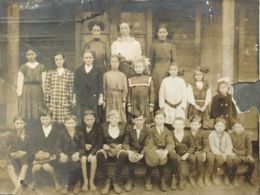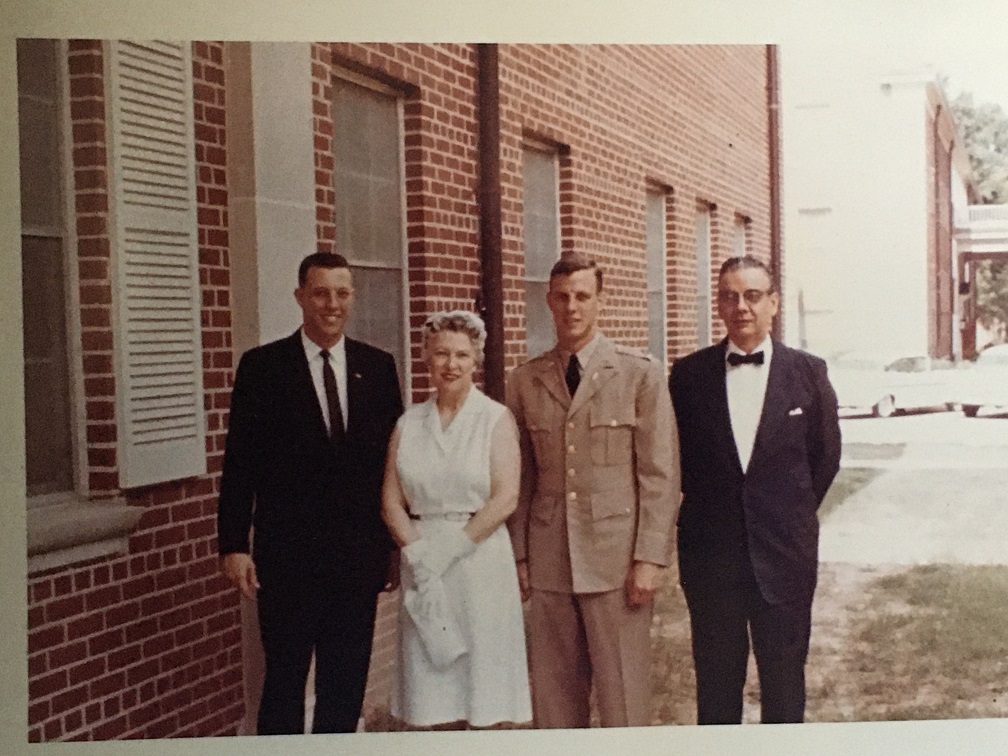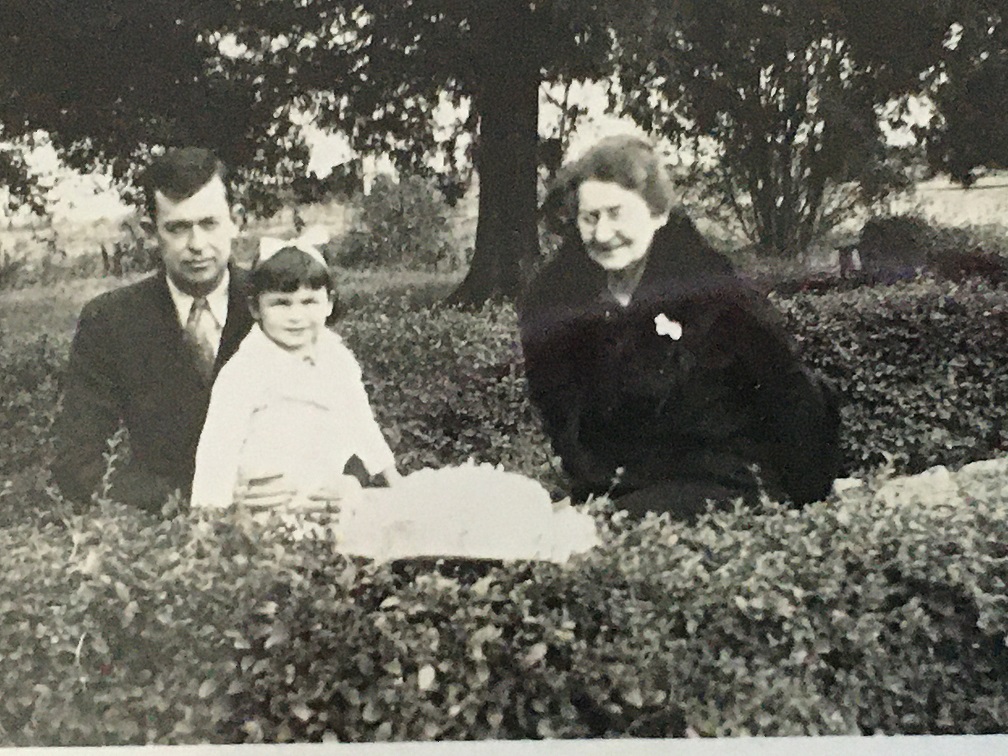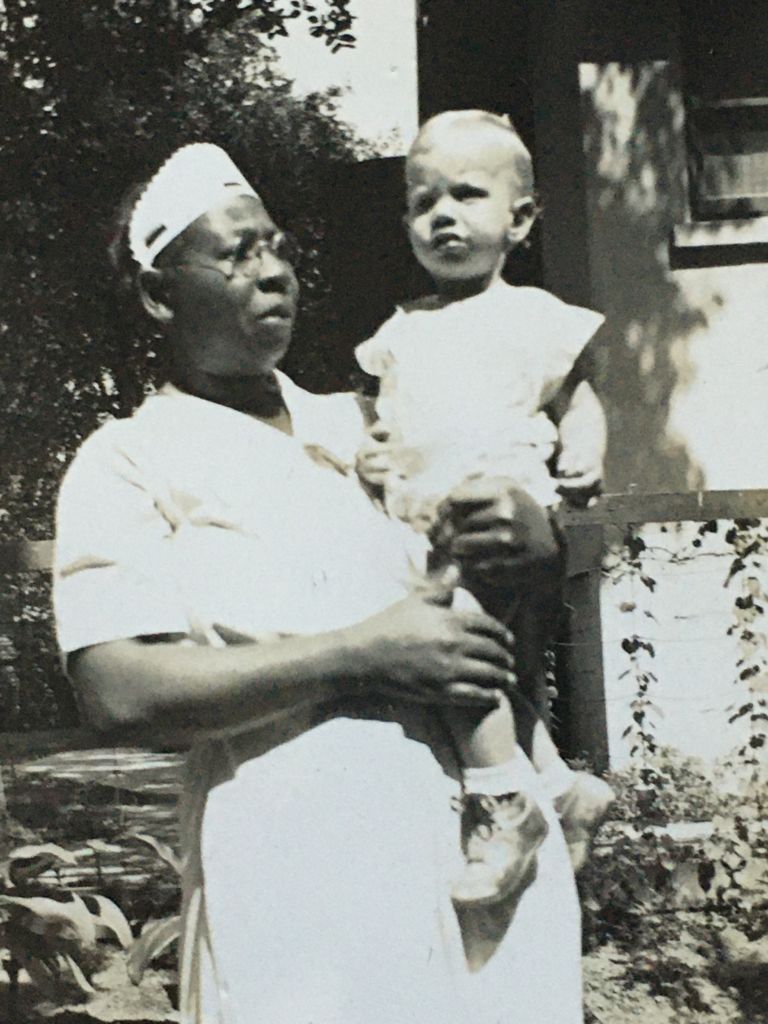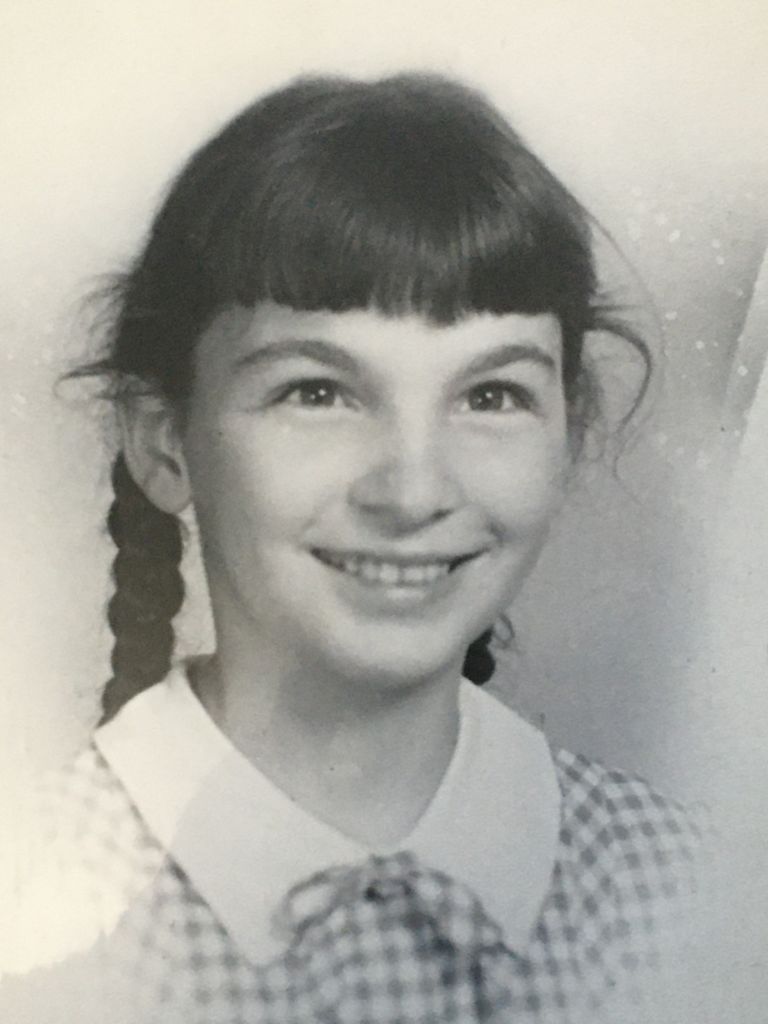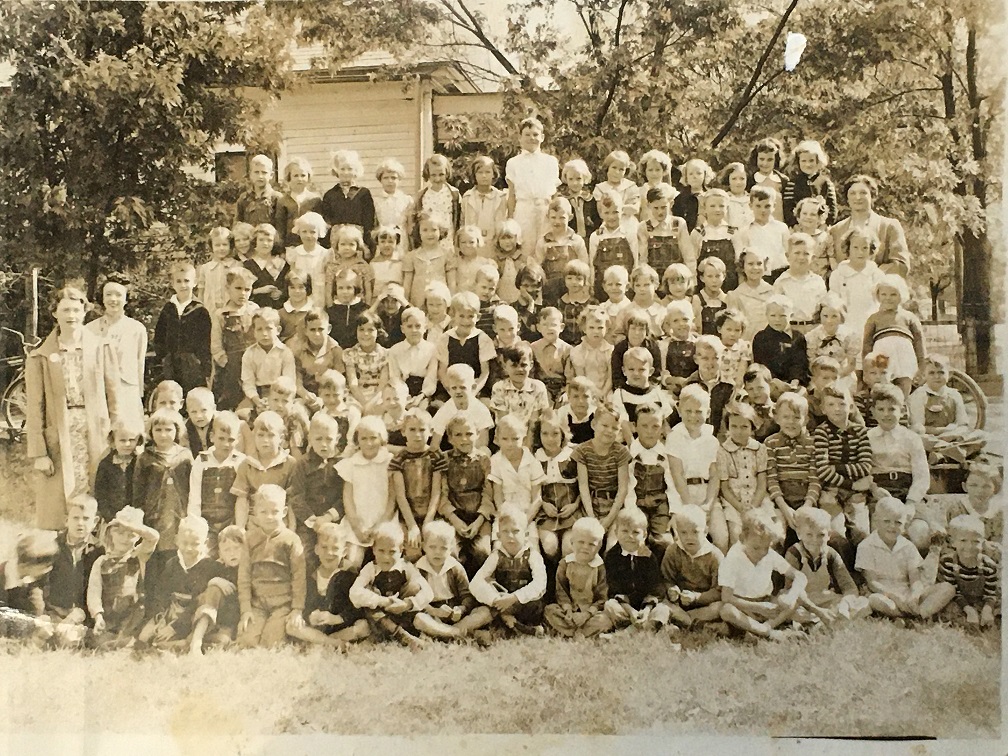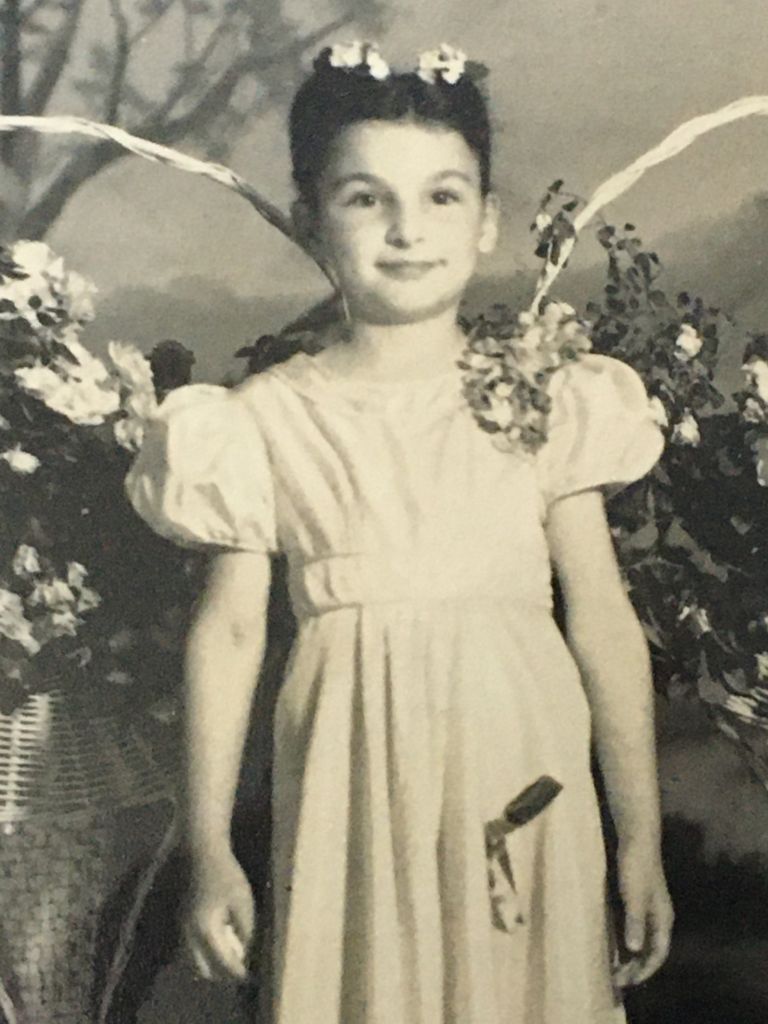A Southerner Comes Home: My Escape from New York
Posted By Jef Costello On In North American New Right | Comments DisabledAfter nearly 20 years of exile in New York City, I recently returned home to the South. I went to New York for a job and arrived full of hope, delighted at the prospect of a new life in “the greatest city in the world.” My preconceptions about the city were almost all positive, and, as I later discovered, heavily romanticized. I had visions of sitting in basement expresso cafes in Greenwich Village [2], listening to the recitations of Beat poets accompanied by Gauloises-smoking bongo players in black turtlenecks. Sadly, I found that that culture had passed into the mists of time, due — among other things — to astronomically high rents.
Prior to New York, I had spent all my life in the South, as had my parents and most of the rest of our family. I was born in Virginia, but that’s not where my family is from. I was born there because my father was in the military and was stationed in the Tidewater region. He was born in Atlanta. His father was from West Virginia and his mother, the only Yankee in the family that I know of, was from Ohio. My grandparents met because they lived just across the Ohio River from each other. My paternal grandfather was a businessman, at one time making his living booking Hollywood movies into local Atlanta cinemas. Later, he was Vice President of a small company he founded with his brother-in-law. They marketed a gadget they had co-invented, an automatic silicone lubricator for motion picture projectors, tape machines, and other devices with constantly moving parts.
My mother’s father was also in business. He owned a furniture store in a little town about an hour and a half south of Atlanta. My mother, like myself an only child, was born and raised there. Her stories about her idyllic childhood in the Deep South in the 1930s and ’40s seemed like they had been scripted by Harper Lee — though I have no doubt that every word was true. My mother’s family had not always been in business. At one time they were part of the antebellum gentry. What Southerners call the “War Between the States” (or, better still, the “War of Northern Aggression”) had been calamitous for them, as for so many other Southern families, and they were brought down in the world a bit. Still, my great-grandmother managed to preserve the family farm, in somewhat reduced circumstances, well into the twentieth century.
In my family we were told the following story. One day, after the surrender of the Confederacy, Union soldiers showed up at my great-great-great grandmother’s farm. The adult males in the family were still making the long march home — the long, sad march of the defeated men in grey — and my grandmother was left to deal with the Yankees on her own. They rounded up the slaves and informed them that they were now free — then ran them off into the hills! These newly-minted freedmen hid in the woods, biding their time, then crept back to the farm after the Yankees had left.
“You gots to take care o’ us,” they said to my grandmother. They had nowhere else to go, and this was the only home they’d ever known. And so there they remained, as did their children and their children’s children, as paid farmhands and servants. Similar stories are told by other Southern families. Yankees sometimes ask me how I “feel” about the fact that my family owned slaves. I tell them truthfully that I have no particular feelings about it at all. Though, perhaps, there is in my character just the meagerest trace of pride in the fact that my people once owned other people. As far as shocking liberals goes, it’s the next best thing to having a grandfather who was in the SS.
My mother was a real Southern belle — and, in her old age, a grande dame, as one of our cousins put it. She had impeccable manners and was kind and hospitable to all, no matter their station in the world. But she also had a strong, traditionally Southern sense of class distinctions, and was adroit at putting people in their place if anyone ever dared to be rude or presumptuous. In the South, this is usually accomplished by drawing oneself up to an immense height, then becoming exaggeratedly courteous, as if to say, “Now I shall demonstrate just how much more class I have than you.”
From the time I was very small, my mother made it clear to me that it was the South that was on the side of the angels in what Southerners also sometimes called, with real Anglo-Saxon understatement, the “recent unpleasantness.” I remember earnestly assuring her one night, as she tucked me into bed, that “I’m on your side.” For this profession of loyalty to the Confederacy I received a kiss. When I was about the same age my parents took me to see the Cyclorama in Atlanta and bought me a replica cap of a Confederate infantryman.
My mother and father were somewhat divided over the issue of race. This is most likely attributable to their different family backgrounds. His family had never been slave owners. He and his brother had gone to school under segregation in urban Atlanta, where blacks were (and still, to a great extent, are) confined to the southwestern part of the city. Thus, in contrast to my mother and her family, they had comparatively fewer opportunities to observe blacks up close. As my readers are aware, sustained contact with blacks is generally enough to turn most whites into race realists, whether they will admit to it or not. My father would often entertain us with very skillful and amusing imitations of blacks (“licker talk mighty loud w’en it git loose fum de jug,” and so on), then turn right around and subject me to stern admonitions against “racism.”
Some of this, I think, was due to the military’s anti-racism, which even then was vigorously pushed due to the imperative to “integrate” the armed forces. But there was also an event in my father’s past that haunted him, something he only related to me late in life. Once when he was a boy, he had gotten angry at the family’s black maid and called her a nigger. My grandmother apologized profusely and compelled my father to apologize as well, but it was no use: The woman’s pride had been wounded and she quit the job (for which, I must say, I admire her). My father spent the rest of his life trying to atone for hurting that woman’s feelings, primarily through insisting that he didn’t see what was plainly before his eyes. Late in life, to my great dismay (as well as that of his old military buddies), he became a full-blown liberal [8].
Things were quite different with my mother. She covered her race realism with the mildest of denials, and often those denials seemed to be proffered with tongue in cheek. She frequently began sentences with “I’m not prejudiced, but . . .” followed by some outrageously prejudiced, but usually accurate observation about blacks (she always used “prejudiced,” which was more common then than “racist”). If some loquacious race huckster like Al Sharpton or Jesse Jackson was shown pontificating on the evening news, she would glower at the TV from the kitchen doorway and exclaim wearily, “Give ’em a microphone . . .” When I was quite young, my mother told me that the one and only thing I could do that would cause her to completely turn her back on me would be if I brought home a colored girl.
One of my mother’s more curious traits, which I do not share, was the tendency to regard Anglo-Saxons as the only real white people (despite the fact that she was half Scots Irish). She never consciously articulated this conviction. And she used a familiar term in her own special way to politely designate these poor, “not quite white” souls: “ethnic.” It was as if, for her, Anglos had no “ethnicity” but were instead pure, standard-issue white people, all others being impure, exotic variations. This has always reminded me of those Indian tribes whose name for themselves translates to “the human beings.”
Once when an Italian-American family moved in down the street, my mother dropped by to welcome them to the neighborhood (i.e., to spy on them). When she returned home, I asked her what they were like. She thought for a moment and, trying to be generous, said, “Well, they’re very . . . (long pause) . . . ethnic.” There was a certain disdain in how she said that word. Perplexed, I asked her what she meant, and with classic Anglo-Saxon offhandedness she replied, “You know, red checked oilcloth on the table and all that.” Besides, like most Italian-Americans in the South, these people were relocated Yankees. And for Yankees my mother had no use. Somewhere or other, Richard Weaver, the agrarian philosopher and native North Carolinian, states that Southerners use the term “Yankees” precisely like the Greeks used the term “barbarians.” This was certainly true of my mother.
And this brings me to a brief excursus on Nick Fuentes. Señor (or is it Signor?) Fuentes, who has much too high an opinion of himself and now seems more punchable than Richard Spencer, devoted a few minutes of his show recently to an attack on the South [10]. He began by trotting out the crudest of stereotypes, making it clear to his audience that he may just have less sympathy for the South and for rural America generally than Mr. Abe Foxman. Fuentes says repeatedly, “My ancestors were not farmers,” pronouncing this word with the same intonation usually reserved for “pornographers” or “Jews.” He seems to think it’s a big deal that his grandfather was a townsman and a merchant — a shoemaker, to be exact. Well, I can assure you that had Fuentes’ Calabrian shoemaker grandfather shown up at my great-grandmother’s farm seeking to be received socially, he would have been immediately directed to the tradesman’s entrance. There, Mammy would have lied and told him that Mrs. Costello was suffering from the vapors that day and consequently unable to receive visitors.
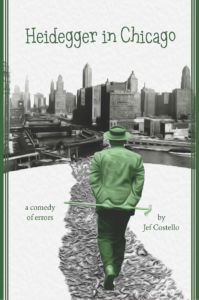 [11]
[11]You can buy Jef Costello’s Heidegger in Chicago here [12]
Though Sr. Fuentes is an alleged “conservative,” he seems unaware that the conflict between North and South essentially boils down to the conflict between the liberal and conservative worldviews, or, better yet, the conflict between the moderns and the ancients: “progress” vs. tradition; egalitarianism vs. hierarchy; race realism vs. race delusion; love of honor vs. love of life; love of those close to us vs. an abstract love of humanity; love of home vs. rootless cosmopolitanism; sincerity vs. irony and detachment; simplicity and honesty vs. a glittering and false sophistication; eccentricity vs. uniformity; an acceptance of mystery vs. an attitude that sees mystery as an affront to human power; belief vs. fanaticism; faith vs. skepticism.
One of my sure companions in my reentry to Southern culture has been the aforementioned Richard Weaver. His book The Southern Tradition at Bay is a study of postbellum Southern apologias. Weaver makes it exhaustively clear that the Southern intelligentsia consciously and explicitly articulated the conflict between North and South in exactly the sort of oppositions I have just mentioned. Furthermore, they understood these oppositions as the fundamental cause of the war, not the opposition over slavery. At one point Weaver quotes one such author, the appropriately named R. B. Rhett, Jr., attempting to articulate the basic differences between the Yankee and the Southerner. The passage is worth quoting at length:
The truth is, there is an incongruity between the two peoples from their very natures. . . . The one is cautious and reticent; the other frank and open in communication. The one is penurious; the other free in the use of money. The one cannot comprehend the meaning of the word honor; the other values it beyond life. . . . The one loves gregariousness and does everything by association; the other cultivates privacy and individuality, and acts with difficulty with others. The one is skeptical, prying, officious, harsh, dogmatic, aggressive, and fond of novelties, misnamed progress; the other is more genial and more tolerant, distrusts change and reverences the past. The one looks upon government as an instrument of aggrandizement, to make money or to rule others; the other regards it simply as an instrument of protection, for securing justice and leaving to all under its authority the privilege of seeking their own happiness in their own way. Is it possible that two people of such different characteristics and antagonistic views can live voluntarily under the same free government?[1] [13]
Having said all the above, it will surprise the reader to learn that for a long time I was a self-hating Southerner. I was embarrassed by much of my heritage, because I reflexively saw it through the eyes of the Yankee. My conservatism, thankfully, moderated my desire to distance myself from that heritage. I knew that the South represented “the old order” — or at least it did at one time. In some abstract sense, I was therefore in favor of it. Outwardly, I often played the part of the proud Southern apologist. I enjoyed defending secession, but a great deal of this had to do with my delight in playing the contrarian, as well as my delight in shocking liberals.
Inwardly, however, I groaned at Southern accents and policed my own speech to remove all such intonation. I resolved never to say “y’all.” And many were the times that, listening to those around me, I thought “deliver me from these hicks.” Never “Lord, deliver me,” for that would have been too, well, Southern. I had absorbed the North’s assessment of the South — the assessment of the conqueror, in other words. The assessment of Sr. Fuentes and his ilk. I seldom let on to anyone — especially Yankees — that I felt this embarrassment. But I am ashamed to say that it was a feature of my character for many years.
That all changed when I moved to New York. Suddenly, I felt very Southern. On hearing that I was from the South, it was often the case that New Yorkers would make disparaging comments about Dixie right to my face, as if they felt sure that I would agree with them. One remark I heard repeatedly was, “I bet you’re glad to be out of the South!” Sometimes I would just immediately change the subject, but occasionally I would fix them with my gaze and pointedly ask, “Why?” This usually caused them to change the subject themselves. Once, because of my Irish name, one brittle Manhattanite harridan mistook me for a Catholic and said, “I thought they didn’t let Catholics into the South.”
New Yorkers claimed that they could hear my Southern accent — even before being told I was from the South, so this wasn’t just the power of suggestion. Ironically, most Southerners don’t hear anything at all and take me for a Yankee. For the Yankee, the Southern accent is the voice of ignorance. They seem unable to hear their own godawful accents, which, to the Southerner, sound coarse, with all the appeal of fingernails on a chalkboard. During my first year in New York, everyone I spoke to sounded to me like a Jew or a gangster. It wasn’t until I’d lived there a few years that I began to find some New York accents amusing, and even sometimes endearing. Definitely an acquired taste.
I like to think that I am very fair in my assessment of New Yorkers. I am always quick to point out to fellow Southerners that I met some awfully nice people in New York. Indeed, if I had to name the kindest and most generous person I have ever known, it would be my Italian-American landlady in Queens, from whom I rented for more than 15 years. Southerners — and everyone else in the country — think that New Yorkers are “rude.” But usually the only situation in which anyone was downright ill-mannered to me was on the highway (driving in New York is a real “war of all against all”). New Yorkers held doors for me, said “please” and “thank you,” and wished me a good day. In particular, they seemed to relish saying “bless you!” anytime anybody sneezed. I still haven’t figured out the reason for that particular cultural difference.
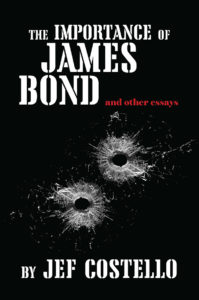 [14]
[14]You can buy Jef Costello’s The Importance of James Bond here [15]
The nicest people in New York were the lower middle class and working-class white people. My neighborhood in Queens was a small enclave of such people — in an ocean of Latinos, Asians, blacks, and God-knows-what. The neighborhood had once, many years ago, been entirely German and Italian. “Oh, Jef, you don’t know how good it was then,” my neighbors would say to me, all of them over 50 (the young folk tended to move away). These people had crusty exteriors, but once you got to know them you found they often had hearts of gold. And they never gave me any garbage about being from the South.
New York makes people crusty, because in a city of eight million people, about half of whom are hostile or at least weird, it’s safer to keep everyone at arm’s length until you’re sure they’re okay. I often experienced what I called “the New York moment” whenever I had to stop a stranger and ask them a question on the street. That’s the moment during which you can clearly tell that they’re thinking, “Is this guy crazy?” A millisecond later (which is all the time it takes a New Yorker to do a psych evaluation), having concluded I was sane, they would visibly relax and then answer my question graciously. Boy, did I fool them!
You won’t be surprised to hear that the worst people in New York were the affluent denizens of Manhattan and far eastern Long Island, who were exactly what you would expect them to be: shallow, snobbish, entitled, super-detached from reality, and therefore super-liberal. But competing with those folk for the title of World’s Biggest Assholes were the middle-class people out on the island who had enjoyed recent financial success and were determined to let you know it. Never before in my life had I seen such materialism, such conspicuous consumption, such keeping-up-with-the-Joneses. “Nouveau riche” would be putting it nicely. These people wanted you to know that they were better than you because they could afford to buy things that you couldn’t. In my case, they bought things that I wouldn’t, even if I’d been able to. In the South there is a tradition, especially among the “old money,” of not displaying wealth in an ostentatious fashion, which is considered “tacky.”
I stuck it out in New York, as I have said, for close to 20 years. I hoped — truly, I did — that I would come to love it, that it would come to feel like home. But it never did. Frequently, I felt overwhelmed by the sheer ugliness of the place — as well as the noise, the crowds, the stench, and the “diversity.” All visitors to New York notice these things. When I saw tourists (who were usually very easy to spot), I would think, “Why? Why on earth did you choose to come here?” I myself had no choice. New York was where I was offered a job, in a field in which jobs are scarce, especially for white males. Literally, of course, I did have a choice. I could have said no, but at the time that would have seemed like passing up a golden opportunity. Besides, as I have said, I had high hopes for my new life in New York, where, in the beginning, my vagabond shoes were longing to stray. (Sorry, but I was determined to get that line in here somewhere.)
I stuck it out until I was eligible to take the generous early retirement deal offered by my employers — in other words, I got out as soon as I could. But a question loomed: Where to now? I seriously considered heading to Eastern Europe and enlisting full time in the Counter-Currents Revolution. But the idea of being an expat didn’t appeal to me. No, by this point a little voice was nagging me: “Go home, go home,” it said. And home meant the South. Years earlier I had laughed at my mother when, after divorcing my father, she had relocated to a little town in Georgia — not her hometown, but one rather like it. My years in New York, however, had taught me the wisdom of my mother’s decision.
And something else had happened in the intervening years: The country had become much more divided. It was just a few years ago that I could hang out with liberal colleagues and acquaintances and have a pleasant time so long as certain subjects were avoided. Now, for the most part, those days feel like they are over. The possibility of friendly relations seems to have fallen apart the moment Trump went down that escalator in 2015. There is such strong enmity on both sides it is starting to seem like 1861 all over again. I began to feel like I was living in enemy territory — and, with the arrival of Covid hysteria, New York basically became a vast, outdoor madhouse.
The battle lines were drawn and the conclusion was inescapable: I needed to be in a Red State; I needed to be back in the South. Suddenly, all that I had laughed at in the South, all that had embarrassed me, now filled me with affection. And affirming and embracing it now seemed like an act of rebellion. Rednecks. Pickup trucks. Hound dogs. Flannel. Concealed carry. Bluegrass. The Stars and Bars. Waffle House. Cracker Barrel. Sweet tea. Grits. Fried green tomatoes. BBQ. NASCAR. Mountain Dew. Piggly Wiggly. Twang. Good manners. Football. Megachurches. Humidity. Friendliness. Y’all.
Okay, maybe I can do without some of these things — such as sweet tea, NASCAR, football, and humidity. But I will defend all of them in the interests of pissing off as many Yankee liberals as possible. And the Southerners among my readers do not need to remind me in the comments section that the above litany does not do justice to the South; it merely lists some of the things that are most alienating and irksome to Yankees. I am well aware that the South is also the land of Lee, Forrest, Davis, Calhoun, Washington, Jefferson, and Poe — just to offer a very short list of luminaries.
Instead of returning to Virginia, where I spent my childhood and adolescence, or Georgia, where I went to school, I headed to South Carolina — which now seems a much deeper shade of red even than Georgia (Virginia, I am sorry to say, is to a great extent occupied territory). And I headed not to a metropolis like Columbia, but to a small town where one of my closest friends lives with his wife and child, as well as their extended families. They have effectively adopted me. Not a cell in my body misses New York, from which I feel like I am still recovering. My departure, indeed, felt like being released from prison.
Practically every morning, while driving to the YMCA, I pass a megachurch and say to myself, “I can’t believe how lucky I am to be back in the South” (though I doubt I shall ever have any reason to enter that church; I prefer my baptisms sans water slide). I am almost moved to tears by the waitress at the Waffle House who asks me, with genuine warmth, “Can I get you anything else, darlin’?” Even the blacks here — those I have encountered thus far — are warm, friendly, and polite. (Rest assured, oh commenters, I am not, however, being lulled into a false sense of security.) I have come home, at last. And I will probably be buried here — or next to my mother, who is buried in her hometown in Georgia. By the way, now I delight in saying “Y’all” as often as possible — especially to my two hound dogs, who are named for Confederate generals.
When I decided to leave New York, I had some trouble booking a moving company to transport my possessions. You may have heard that there has been a mass exodus of Yankees seeking refuge in the South — due to Covid restrictions, and other Blue State pathologies. Now and then I encounter these people in South Carolina, and I take great pleasure in saying, “I bet you’re glad to be out of the North!” In every single case, they affirm that they are, and without the slightest trace of hurt feelings.
But if Yankees keep coming here at the present rate, I may soon have to move back.
Editor’s Note: The photographs illustrating this article are of Mr. Costello’s family.
* * *
Counter-Currents has extended special privileges to those who donate $120 or more per year.
- First, donor comments will appear immediately instead of waiting in a moderation queue. (People who abuse this privilege will lose it.)
- Second, donors will have immediate access to all Counter-Currents posts. Non-donors will find that one post a day, five posts a week will be behind a “Paywall” and will be available to the general public after 30 days.
- Third, Paywall members have the ability to edit their comments.
- Fourth, Paywall members can “commission” a yearly article from Counter-Currents. Just send a question that you’d like to have discussed to [email protected] [16]. (Obviously, the topics must be suitable to Counter-Currents and its broader project, as well as the interests and expertise of our writers.)
To get full access to all content behind the paywall, sign up here:
Paywall Gift Subscriptions
 [17]If you are already behind the paywall and want to share the benefits, Counter-Currents also offers paywall gift subscriptions. We need just five things from you:
[17]If you are already behind the paywall and want to share the benefits, Counter-Currents also offers paywall gift subscriptions. We need just five things from you:
- your payment
- the recipient’s name
- the recipient’s email address
- your name
- your email address
To register, just fill out this form and we will walk you through the payment and registration process. There are a number of different payment options.
Note
[1] [18] Quoted in Richard Weaver, The Southern Tradition at Bay (New Rochelle, N.Y.: Arlington House, 1968), 149.
